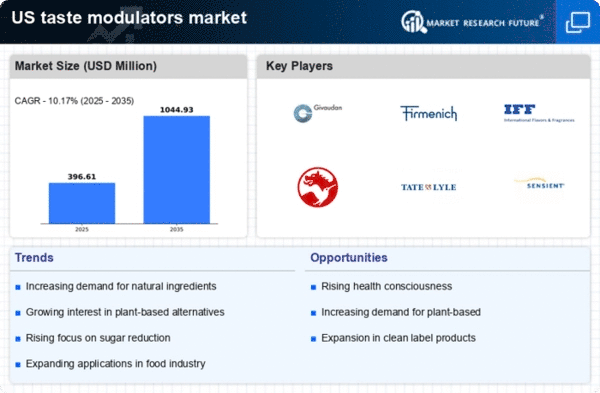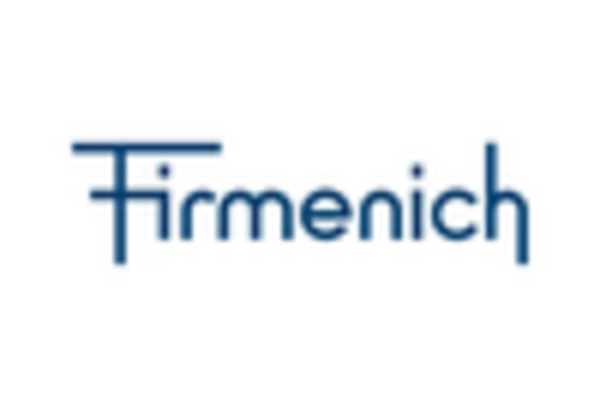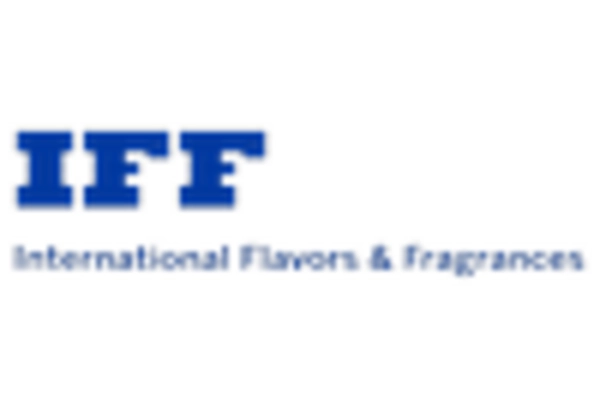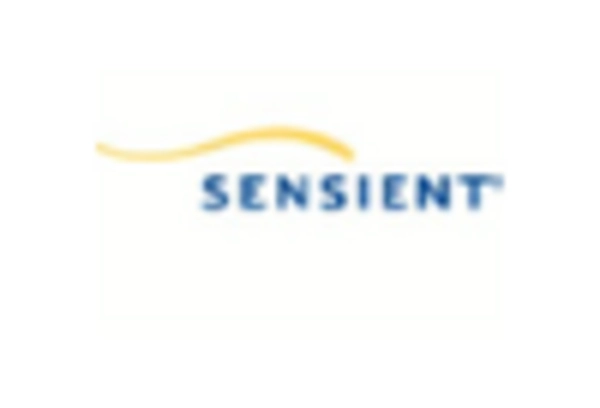Rising Demand for Flavor Enhancement
The taste modulators market is experiencing a notable increase in demand for flavor enhancement solutions. Consumers are increasingly seeking products that offer improved taste profiles without compromising health. This trend is particularly evident in the food and beverage sector, where companies are investing in taste modulators to create appealing flavors that cater to diverse consumer preferences. The market for taste modulators is projected to reach approximately $1.5 billion by 2026, reflecting a compound annual growth rate (CAGR) of around 6.5%. This growth is driven by the need for innovative flavor solutions that align with evolving consumer tastes and dietary requirements, thereby propelling the taste modulators market forward.
Shift Towards Reduced Sugar Products
In recent years, there has been a significant shift towards reduced sugar products, which has a profound impact on the taste modulators market. As consumers become more health-conscious, they are actively seeking alternatives to high-sugar foods and beverages. This trend has prompted manufacturers to explore taste modulators that can replicate the sweetness of sugar while minimizing caloric content. The taste modulators market is responding to this demand by developing innovative solutions that enhance sweetness perception without the associated health risks. It is estimated that the market for sugar substitutes and taste modulators could grow by 8% annually, reflecting the increasing consumer preference for healthier options.
Growing Interest in Plant-Based Diets
The growing interest in plant-based diets is reshaping the taste modulators market. As more consumers adopt vegetarian and vegan lifestyles, there is a rising demand for taste modulators that can enhance the flavor of plant-based products. This shift is not only about health but also about sustainability and ethical considerations. The taste modulators market is adapting by creating solutions that improve the taste and texture of plant-based foods, making them more appealing to a broader audience. Market analysts suggest that the plant-based food sector could reach $74 billion by 2027, indicating a substantial opportunity for taste modulators to play a crucial role in this evolving landscape.
Increased Focus on Clean Label Products
The trend towards clean label products is significantly influencing the taste modulators market. Consumers are increasingly scrutinizing ingredient lists and favoring products that are perceived as natural and free from artificial additives. This shift has led manufacturers to seek taste modulators that align with clean label principles, ensuring that flavor enhancement does not compromise product integrity. The taste modulators market is responding by developing solutions that are derived from natural sources, thereby appealing to the growing segment of health-conscious consumers. It is projected that the clean label market will grow at a CAGR of 7% over the next five years, further driving demand for compliant taste modulators.
Technological Advancements in Flavor Science
Technological advancements in flavor science are playing a pivotal role in the evolution of the taste modulators market. Innovations in extraction and formulation techniques are enabling the development of more effective and versatile taste modulators. These advancements allow for the creation of flavors that are not only more intense but also more stable, enhancing the overall consumer experience. The taste modulators market is likely to benefit from these technological improvements, as they facilitate the introduction of novel products that meet the demands of modern consumers. The market is expected to see a growth rate of approximately 5% annually, driven by continuous research and development efforts in flavor technology.
















